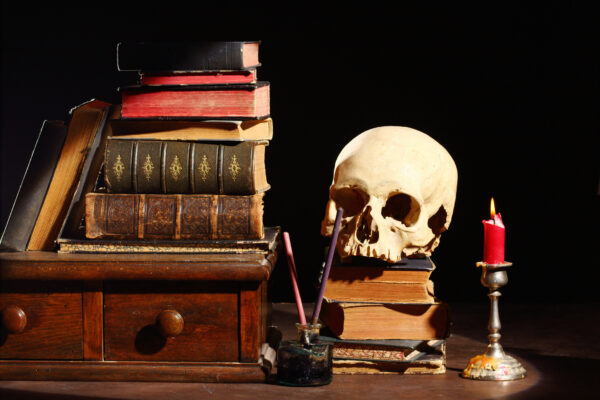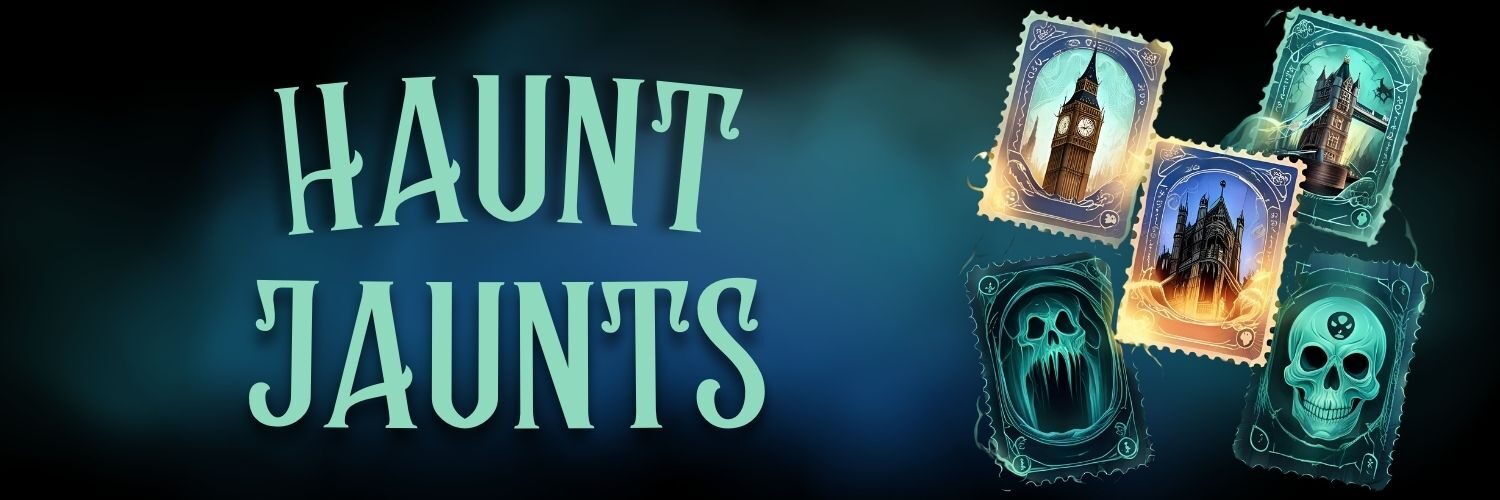
During the press conference call with Travel Channel stars Amy Bruni, Cindy Kaza, Katrina Weidman and Chelsea Laden to promote their Comic-Con@Home panel “Wonder Women: Superstars of Paranormal,” Allison Jornlin asked a couple of great questions. The first was to inquire about who their female paranormal role models might be, but the second one involved resources.
I thought this was such a super great question for many reasons. I’ve always wondered how much of the research they actually do and how much they really know about it, because I know some shows have their own researchers.
Their answers were great. From local historians to old-timers, who prefers what? Read on to find out.
The Question
Here’s what Allison Jornlin asked:
Thank you. I wondered, as paranormal investigators and historical researchers, what resources you have found particularly helpful or inspirational. You know, it could be anything. It could be a book. It could be a parapsychological study. It could be something you’ve learned from another culture. What has been something that’s been inspirational to you that you would want to share with other historical researchers or paranormal investigators?
The Answers
Katrina Weidman
Hi. This is Katrina. I–one of the things I love–and, of course, like, you know, all the–Amy touched on this earlier–that articles and everything are digitized now, and they’re so much more accessible, which makes our jobs a lot easier. And we certainly utilize a lot of the local historians. But, one of the things I love to do when I show up for an investigation is–and it sounds funny–but, honestly, hit like the local bar and talk to, you know–you kind of talk to, quote, unquote, the old-timers–what people would call the old-timer of the town–because they have so many stories that, you know, really did not make it into the newspapers and you’re not going to find from doing historical research that way. And I have found that stuff to be invaluable when you get to have those conversations.
Amy Bruni
Katrina, we need to investigate more often together.
Katrina Weidman
(Inaudible)
Amy Bruni
Yeah. So, this is Amy. And I just–I really want to hit on historical societies and how invaluable they are and how they’re dying. Like it’s really sad to see. They’re my favorite thing about historical research because you usually–you know, you walk into a historical society, and it’s usually an old-timer, like Katrina said, you know, some wonderful, you know, person in their eighties or nineties running the place with a wealth of information, with a love for their community, with, you know, all of these artifacts and, you know, records at their fingertips. And they’re so eager to share it with you. And it’s extremely rare that you see anyone younger than that in a historical society. And like my local historical society is now open two hours a week, which I think is a travesty. And so, that’s one of the things, you know, on Kindred–we always try to highlight the local historical societies. It’s kind of just something that I–it breaks my heart. And I just really–I would love for people of the younger generations to just take an afternoon and walk into a local historical society and ask some questions and look at everything, look at where your community came from. You know, even if you’re a transplant, which I think has a lot to do with it–there’s a lot of communities–people don’t feel that connection to their community any longer because we have become such a transient society. But, that would be–I mean, that’s–they’re huge, and I’m hoping that–you know, especially right now they’re really, really struggling. And I’m hoping that maybe we can just, you know–just share that wealth of information that’s available to us and keep them going for future generations to enjoy.
Cindy Kaza
This is Cindy. I’m going to come at it from a little bit of a different standpoint as a medium because I’m not involved so much in the research. But, for me, it’s been really helpful to explore different cultures and how they experience the spirit world. I’ve spent a lot of time traveling, especially in southeast Asia and working with different healers. And what that’s done for me is to really open my eyes to all the possibilities on the other side because I think that we tend to, based on our, you know, cultural background, interpret the spirit world in our own way. But then, when you go to these other cultures and they have all these different spiritual–different names–it’s fascinating. Once you’re aware of it or you’re open to it, you can experience more. So, I found that, you know, reading about different religions and the spirits in the religions and how they communicate with people in those cultures has really expanded my, I guess, awareness. Like I’ve really been open to a lot of things I don’t know that I would have been open to had I not, you know, traveled and met with those healers. So, that’s something I think is really important to anybody wanting to go into the field of mediumship is to understand the differences in cultures and religions and the experiences.
Chelsea Laden
Well, I can’t top that. But, that was great. Those are great answers. And I agree with everybody. But, I don’t really have anything to add to it. I do think people’s experiences alone are incredibly powerful and just the importance of retaining historical documents and the authentic history of each location is so important.
Check-In
Did any of their resources surprise you?
Courtney Mroch is a globe-trotting restless spirit who’s both possessed by wanderlust and the spirit of adventure, and obsessed with true crime, horror, the paranormal, and weird days. Perhaps it has something to do with her genes? She is related to occult royalty, after all. Marie Laveau, the famous Voodoo practitioner of New Orleans, is one of her ancestors. (Yes, really! As explained here.) That could also explain her infatuation with skeletons.
Speaking of mystical, to learn how Courtney channeled her battle with cancer to conjure up this site, check out HJ’s Origin Story.
